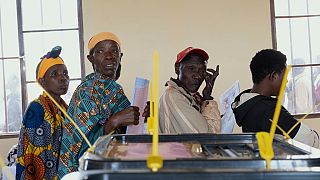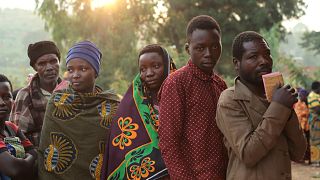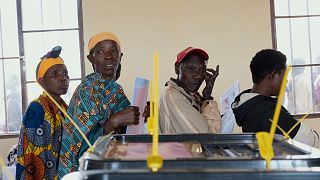Burundi
The campaign for the 20 May presidential, legislative and municipal elections in Burundi began on Monday, in a climate of mistrust towards the government for its management of the new coronavirus epidemic and repression of the opposition.
The campaign will last until 17 May, according to a presidential decree. It begins at 06H00 (04H00 GMT) and ends at 18H00 each day, “all propaganda” outside the set period being prohibited.
Seven candidates are running for the presidential election, including the ruling CNDD-FDD party’s General Evariste Ndayishimiye, who is presented on election posters as the “heir” of President Pierre Nkurunziza, who has been in office since 2005 but is not standing for re-election.
His main opponent is the historic leader of the former Hutu rebel FNL and candidate of the National Council for Liberty (CNL) party, Agathon Rwasa.
The campaign opens as the opposition accuses the government of deliberately minimising the Covid-19 pandemic, to avoid the population questioning the sense in holding the elections.
The authorities, for whom the country is protected by “divine grace”, provided practically no specific protection measures for the electoral rallies. Burundi has officially registered 15 cases of new coronavirus, including one death.
A great effervescence has taken hold of the country. During the night, posters with the names of the candidates flourished everywhere. Trucks and buses are already full of activists on their way to the first meetings.
The CNDD-FDD is due to launch its campaign in Bugendana commune, in the central province of Gitega, on Monday, with great pomp and pageantry, where it plans to gather tens of thousands of people.
The CNL has chosen Ngozi, stronghold of President Nkurunziza, and has mobilized dozens of buses to bring thousands of activists from all over the country.
“The Ceni (Electoral Commission) has given us kits made up of buckets of water and soap so that the supporters who are going to take part in the meetings can wash their hands, but we realise that this will be useless,” a politician told AFP on condition of anonymity.
“Everybody is obsessed with the electoral stakes today (…) We’ll think about the pandemic later,” he regretted.
The opposition also denounced the repression and intimidation it has been subjected.
In a statement released Monday, Human Rights Watch (HRW) said it had documented several cases of killings, disappearances, arbitrary arrests, threats and harassment against alleged opponents over the past six months.
“There is little doubt that these elections will be accompanied by even more abuses as Burundian officials and members of the Imbonerakure (the CNDD-FDD youth league) use violence with almost complete impunity to allow the ruling party to maintain its grip,” said Lewis Mudge, HRW’s director for Central Africa.
AFP













00:52
Nigeria’s Peter Obi to contest 2027 election, opposition coalition in jeopardy
01:11
Burundi calls on United Nations to recognize 1972 genocide against Hutus
01:00
Detained Chadian opposition leader Succes Masra begins hunger strike
Go to video
CAR officials issue statement claiming president is not seriously ill
01:09
Ivory Coast president set to announce whether he will seek a fourth term
01:09
Cameroon’s civil society calls on voters to sanction Biya in upcoming elections